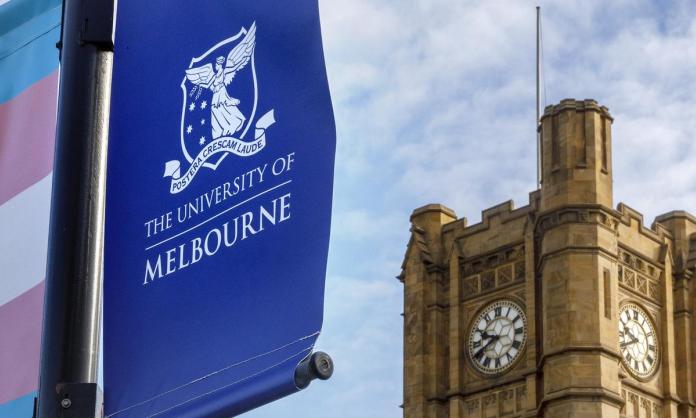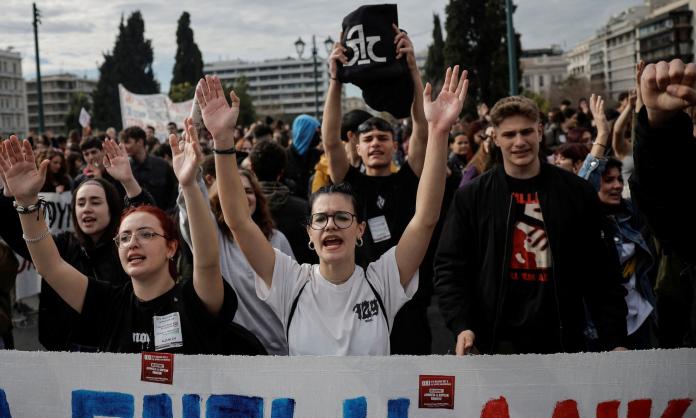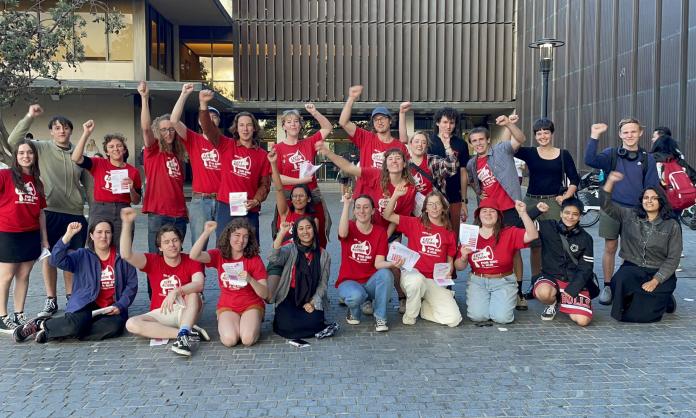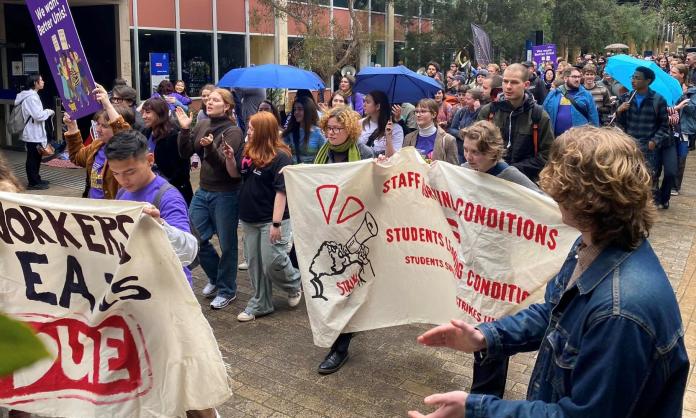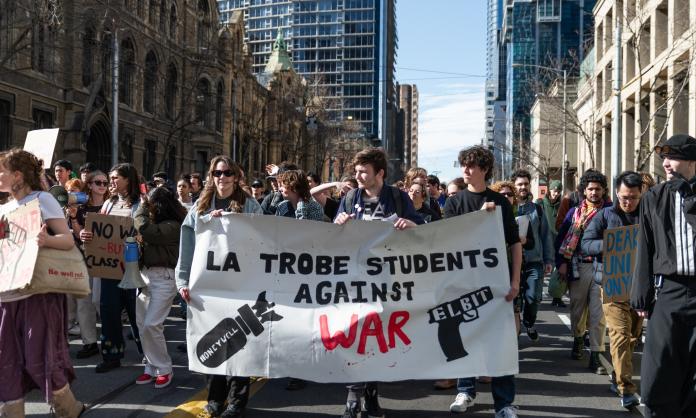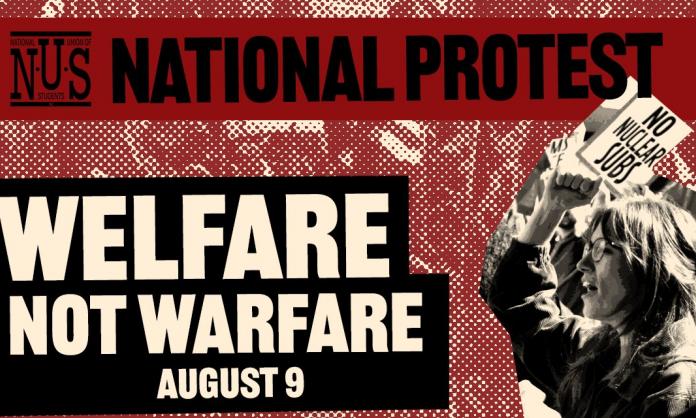The University of Melbourne Student Union council for the second time voted in favour of the Boycott, Divestment and Sanctions campaign against Israel and in solidarity with Palestine on 15 August.
The motion, which was passed 16 votes to three, was moved by Palestinian international student and activist Dana A, and recognised that “the growth of the Israeli economy and land is built on the exploitation and colonisation of Palestinians” and called for the university to “divest from corporations complicit in and profit from the Israeli apartheid and that operate on illegally occupied Palestinian land”.
This follows a months-long battle between Zionists and Palestine solidarity activists over a previous pro-Palestine motion passed in April. That motion provoked a significant backlash from Zionists on campus, as well as from the University administration and the Murdoch press. Threats from a Liberal Party-aligned student to launch a class action against the union resulted in the council rescinding the motion in June.
The union then hired a consultancy firm to survey the student body on the question of Palestine. A large majority—73 of 124 surveyed—believed the union should adopt a motion endorsing the Boycott Divestment and Sanctions campaign against Israel. This was an important factor in strengthening the council’s resolve.
The successful vote also followed the Israeli Apartheid Week event on campus, organised by Students for Palestine. The central demand of the week was for the University of Melbourne to sever its ties with Israel. The University shrouds itself in progressive gloss—from the huge WOMENJIKA sign at one entrance to the campus (Womenjika is the Woi-wurrung word for welcome) to the array of pride and trans flags scattered throughout campus. But despite this anti-colonial posturing and pink-washing, the University proudly supports Israel.
The University works hand in glove with Lockheed Martin, the world’s largest weapons manufacturer and a major collaborator with Israel. According to a Lockheed Martin information webpage, the value of “collaboration between Lockheed Martin and Israeli industries [from 2004 to today] is expected to exceed $4 billion”. The University of Melbourne opened up a research and development centre for Lockheed Martin in 2016, which is used to advance research in military technology and channel students into the military sector. In partnership with Lockheed Martin, Melbourne University is funding the creation of drones and missiles that will be used to attack Gaza and the West Bank.
Another partnership the University maintains is with the Hebrew University of Jerusalem, which offers programmes to train up future Israeli Defence Force soldiers, the same people who go on to terrorise, brutalise and kill Palestinians. In 2014, the Hebrew University publicly declared its support for Israel’s war on Gaza and called for donations to bolster the war effort. More than 2,000 Palestinians were murdered during this eight-week onslaught. The Hebrew University administration called the cops on Palestinian students as they protested the war.
Israeli Apartheid Week activities on campus demonstrate that there is support for the Palestinian struggle, and that people will not easily be intimidated by legal threats from Liberal students. Around 65 students and staff attended a speak-out in solidarity with the people of Gaza, where Victorian Socialists candidate for Northern Metro Jerome Small spoke about Israel’s recent attack on the Gaza Strip. The attack killed more than 47 Palestinians, among them 16 children, and 360 people were injured. Just prior to launching the attack, Israel ramped up its long-standing blockade of Gaza, cutting off access to fuel and electricity and bringing an already strained hospital system to the brink of collapse.
Other activities included a forum on “Why you should oppose Israeli Apartheid” and an artwork on the university’s South Lawn that encouraged students to write solidarity messages on Palestinian flags.
The union’s official endorsement of the Boycott, Divestment and Sanctions campaign means there is an opening for students and staff to further demonstrate their solidarity with Palestinians. Given there have been threats of further legal action, continuing to unapologetically stand with the oppressed against Israel will be important.




